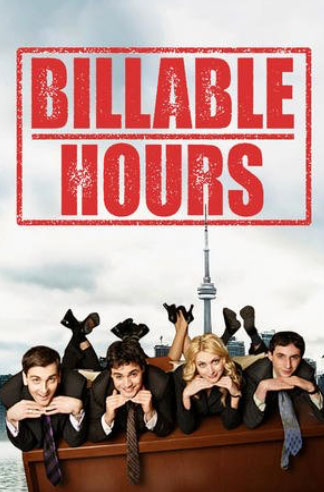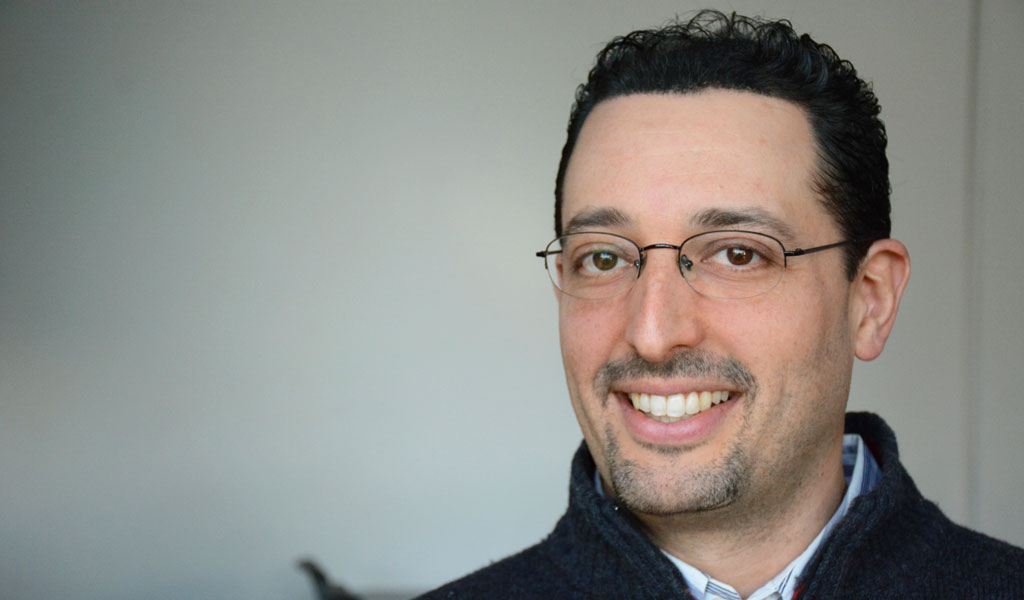Twenty years ago, Adam Till left behind a fledgling career in corporate law to chase his dream of becoming a screenwriter.
Five whirlwind years later, Billable Hours – the semi-autobiographical, Gemini Award-winning sitcom based on his short-lived life as a former lawyer – premiered on Showcase.

“I kind of knew, even in school, that law wasn’t for me. I liked law school, but I spent a lot of my time there trying to figure out what lawyers do – and I wasn’t liking what I was finding out,” said the Montreal-born, Toronto-raised producer and screenwriter.
What he did discover, however, was that his “mind-numbing” experience articling made good fodder for his comedic writing pursuits.
“Billable was my law career. It was my passion project and watching that come to life was great, if not ridiculous,” he said of achieving his screenwriting dreams with the show’s three-season run.
“You don’t usually get that kind of chance at 29. It’s usually something that happens later on in your career.”
Fast-forward another 15 years – plus numerous award-winning shorts, TV movies, feature films and a decade-long teaching career at Toronto Film School later – and Till has now been named the director of Yorkville University’s Bachelor of Creative Arts program.
It’s a role Till said he hopes will allow him to draw on all of his past experiences to guide and inspire the next generation of young artists towards success in the creative industries.
“It’s another natural fit for me. I have all these students who I’m trying to mentor in the way people mentored me,” he said, lamenting that he didn’t find his own mentors until after law school.
“Growing up, I had the typical response to wanting to be a creative writer, where my English teachers told me to become a lawyer and my parents told me to become a doctor,” he laughed.

“No one supported a creative career, especially back then, and not in the way that they probably should, given the amount of money that’s being spent on the creative industries in Canada right now. So yeah, I was just told ‘Yeah, that’s a fun thing that you do well. So what?’”
With little support for his writing as anything but a side hobby, Till decided to pursue his BA in Economics out of high school, then went on earn his MBA/JD through the Schulich School of Business and Osgoode Hall Law School.
While he didn’t discover the career satisfaction he was seeking during his post-graduation articling stint, what he did find was a mentor in Michael Levine – then widely known as Canada’s “super-agent” and foremost entertainment lawyer.
By that time, the novel Till had been writing in his free time had turned into a “structurally disastrous” yet nevertheless compelling screenplay whose characters and dialogue piqued the interest of the Westwood Creative Artists chairman.
“Michael co-owns the largest literary agency in the country. They were just starting a film and television division at the time, so he brought me in as an early client and he introduced me around,” Till recalled.
One one of those introductions resulted in his collaboration with two-time Academy Award-nominated writer/director Atom Egoyan, for whom he adapted The Adjuster into a TV series that was optioned to Showtime.
Another lead to his writing partnership with Fabrizio “Fab” Filippo, who would later become his Billable Hoursco-creator.
He also secured mentors in Sheldon Larry, who was directing David E. Kelley projects at the time, and Leslie Belzberg, who was producing John Landis films.
“I didn’t have a set plan really, but by the time I left law, I had some momentum. I had Michael Levine supporting me, I was being represented by Westwood, I had the support of the Canadian Film Centre,” Till explained.
“I sort of got a reputation as a hot young new writer.”
After Billable Hours’ three-season run on Showcase came to an end, Till and Filippi teamed up again to write the screenplay for Lifetime Movie Too Late to Say Goodbye. The film, which debuted on LMN and TMN in 2010, was based on a true crime book of the same name by Ann Rule and starred Rob Lowe and Lauren Holly.
The pair also teamed on the screenplay for Perfect Sisters, a 2014 feature film starring Mira Sorvino and Abigail Breslin.
It was also around 2010 that Till was approached by one of his father’s former colleagues, Dr. Rick Davey, president of Toronto Film School and Yorkville University, to develop the Writing for Film & Television program at Toronto Film School.
“He was always interested in my career, following my show and then my movies after that. When he asked me if I’d be interested in developing the screenwriting program for TFS, frankly, I wasn’t sure,” he said.
“But I kinda got hooked. I really like the teaching, the students, the energy and the people at the school. It’s a really great environment at TFS.”
Now both the director of Toronto Film School’s 18-month screenwriting diploma program and the coordinator of Toronto Film School Online’s 24-month associate diploma, Till was flattered once again when he was asked to take up the mantle of Yorkville University’s Bachelor of Creative Arts program.
A degree completion program, Yorkville’s Bachelor of Creative Arts is aimed at advancing the careers of diploma-holding students who have mastered the practical creative skills associated with a wide range of artistic endeavours by teaching them about leadership and critical thinking in the cultural context of the creative arts.
“All told, it’s meant to be leadership, entrepreneurship, management and project management training for artists – with the unique slant that it’s for students in the creative industries,” Till said of the newly launched degree, noting that it’s a natural next step for graduates of creative diploma programs including Toronto Film School’s array of diploma programs.
“I thought it was a good fit for me, given my background and having done a lot of producing and legal work. As the businessperson in my production company, I know these skills and know how important they are.”
His new role as director of the Bachelor of Creative Arts also allows Till to pay forward all the support and encouragement he received from his mentors to a whole new generation of up-and-coming young creatives.
“It’s nice being able to do things for students who you see are excited and talented and want to do it,” he said.
“I always thought my mentors were really putting themselves out there, but now that I’m doing it a little bit…I’m sort of seeing how the process is almost cyclical. You end up getting back it from what you give. And now, with the BCA, I get to watch all sorts of creative artists get those first opportunities.”






